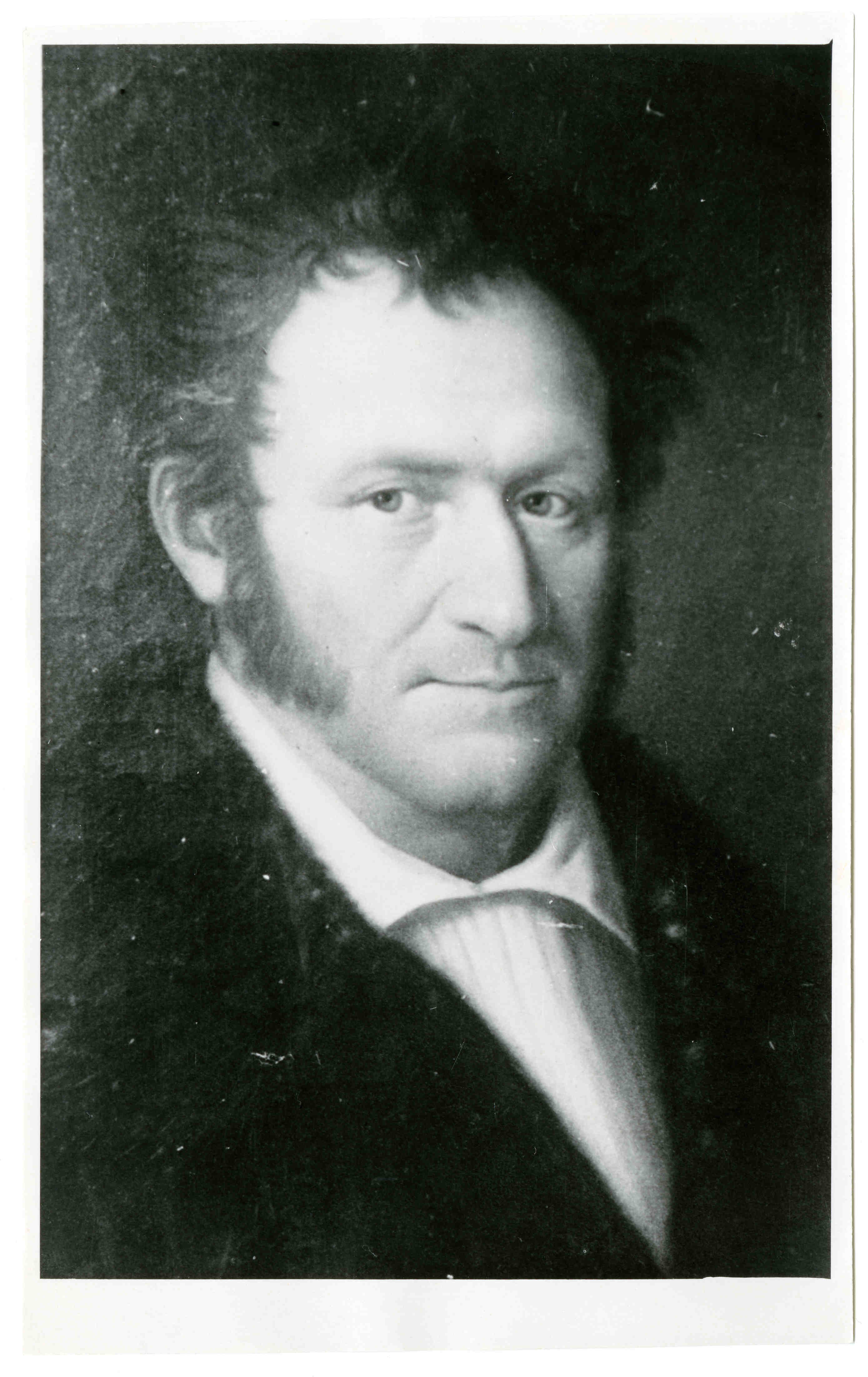
Peter August Friedrich von Mannteuffel
Count Peter August Friedrich von Mannteuffel (30./19. I 1768 – 8. V / 26. IV 1842) was a Baltic-German man of letters who wrote poetry and stories in Estonian which were in a more vernacular style and more in sympathy with the peasantry that the works of most of the Baltic German writers.
He was born in Tallinn into an influential Baltic German noble family. Apparently he was educated by private tutors, among others by O.W. Masing, the enlightenment figure of Estonian origin, who was only five years older than Mannteuffel. With Masing, in his late teens the count travelled extensively in western and southern Europe, including Rome; he attended lectures at the University of Leipzig. Mannteuffel also corresponded with the Baltic German scholar of Estonian folklore, Arnold Knüpffer. He owned about ten estates in northern Estonia, and spent most of his life at Ravila Manor. He was known for his eccentric behaviour. As a young man he was active as an actor in the Tallinn amateur theatre founded by August von Kotzebue; he built several machines, including an aircraft, the unsuccessful trials of which at the turn of the century at Pada Manor gave rise to several folk stories. He engaged in physical work on the estate and was happy to mix with the peasantry, which was quite exceptional for a Baltic German nobleman. In people’s mouths he acquired the nickname ‘the mad count’, thus becoming an archetypal figure in Estonian culture – that name has been borne in later times by other noblemen and politicians.
In his younger days, before the turn of the century, he wrote poems in Estonian in a sentimental romantic style, the themes of which were farm life, love and liquor. Most of these poems have disappeared by now. August Annist ascribes to Mannteuffel the anonymous verse dialogue Üks Ennemuiste Luggu ühhe Warga peäle (‘An Ancient Tale about a Thief’), which appeared at the end of the 18th century and was several times reprinted.
Mannteuffel is best known for a book that appeared at the end of his life, Aiawite peergo walgussel (‘In the Light of the Torch of Diversion’, 1838). This is a collection of six fables and one longer story, depicting the life of peasants of the period – love and marriage, but also theft of manor property, alcoholism and the general wretchedness of farmers’ lives. Although the author does not criticise the late feudal system of the period, he at least draws attention to the plight of the peasantry. The detailed descriptions of peasant life and customs brought recognition of Mannteuffel’s good knowledge of his subject. He used many proverbs and much humour, and in the poetry even some elements of folk-songs. The religious component is secondary. Mannteuffel makes orthographical mistakes in Estonian, but his style is, in the opinion of literary scholars, natural and demotic, his vocabulary abundant, which helped Alawite peergo walgussel to become popular among Estonians at the time. Some of the poems appearing in it became common knowledge and some of them were rewritten as folk-songs.
Mannteuffel’s second book was the anti-alcohol Willem Nawi ello-päwad (‘The Days of Willem Naav’, 1839), whose basic idea was borrowed from the Swiss writer J.H.D. Zschokke’s tale Die Branntweinpest (‘The Scourge of Spirits’). Elias Lönnrot also translated Willem Nawi ello-päevad into Finnish, adapting it slightly to Finnish conditions – Wilhelmi Linterin historia (‘The History of Wilhelm Linter’, 1856) is one of the first translations of Estonian literature into a foreign language.
F.R. Kreutzwald upheld the creations of Mannteuffel in particular in comparison with the more mediocre Pietistic moralizing tales in Estonian by Baltic Germans. Mannteuffel’s books also enthused F.R. Faehlmann and other great figures of the National Awakening to create literature in Estonian.
S. V. (Translated by C. M.)
Books in Estonian
Üks Ennemuiste Luggu ühhe Warga peäle. Tallinn: 179-?, 8 lk.
Peter August Freidrich krahv v. Mannteuffel, Aiawite peergo walgussel. Tallinn: 1838, 75 lk. [Järgnevad trükid: 1839, 1939.]
Peter August Freidrich krahv v. Mannteuffel, Willem Nawi ello-päwad. Tallinn: 1839, 55 lk. [2. trükk: 1922.]
Collected works
Teosed. Redigeerinud ja järelsõna kirjutanud August Annist. Tallinn: Eesti Raamat, 1967, 163 lk. [2. trükk: ‘Ajaviide’, 2018.]



